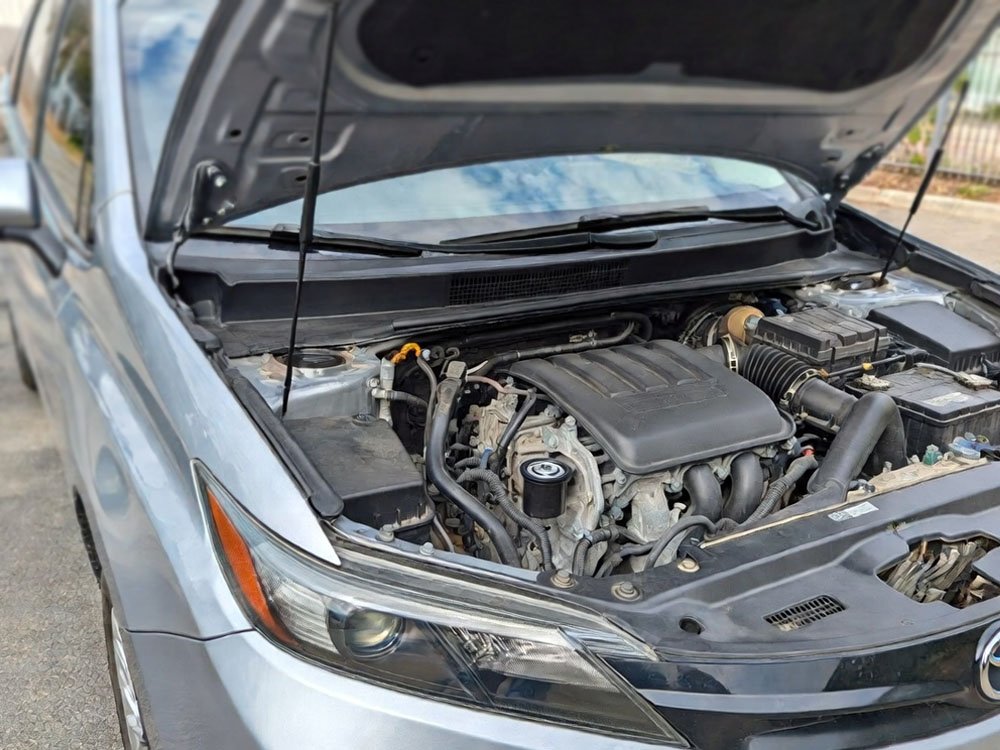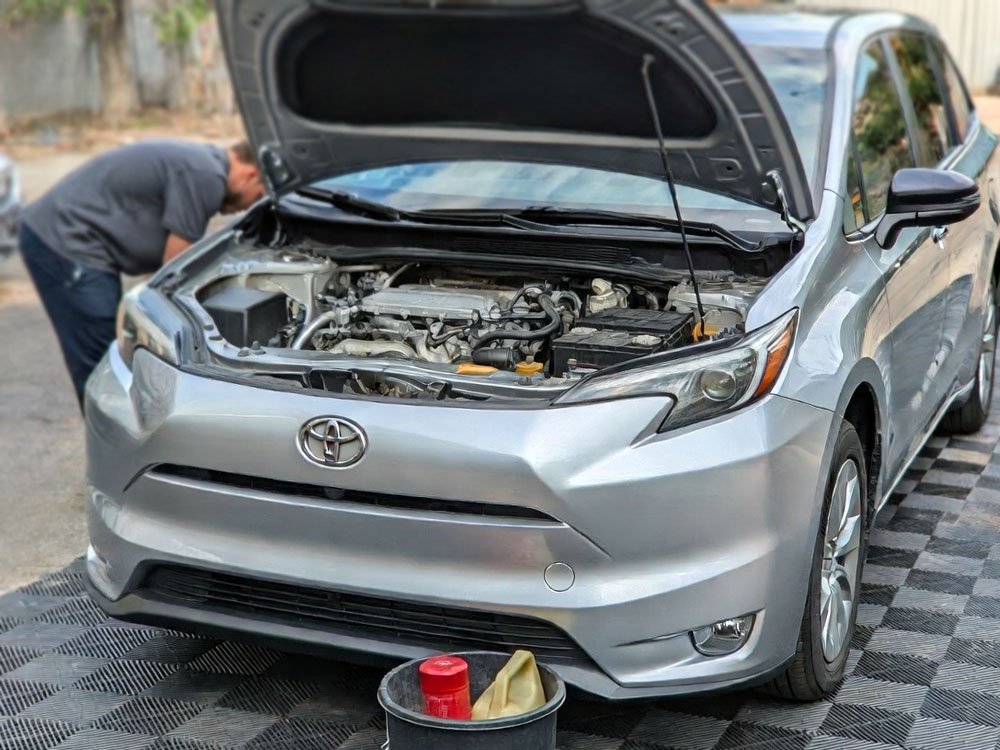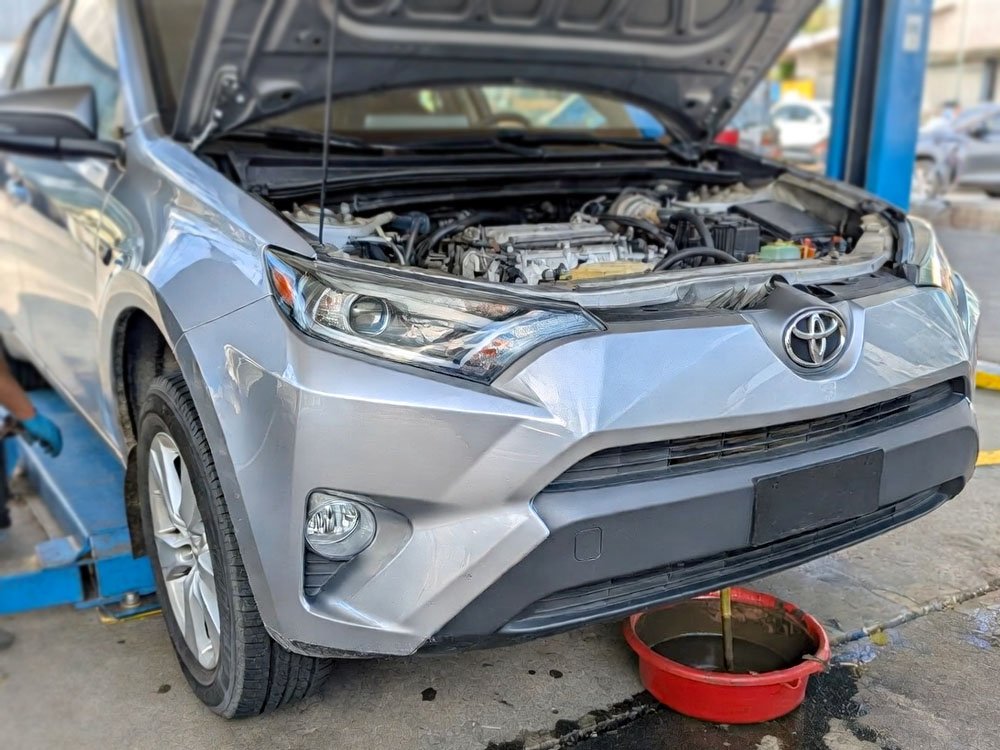As an Amazon Associate, I earn from qualifying purchases at no extra cost to you.
Audi A3 Central Locking Problems: Fast Fixes You Can Do Today
Have you ever tried locking your Audi A3 and the central locking just didn't respond? It can be frustrating and even unsafe. In this article, I'll show practical ways to solve Audi A3 central locking problems quickly. You'll learn what usually causes the issue and how to fix it at home or with minimal tools, without unnecessary stress or cost.
Check the Key Fob and Battery Condition
The first thing to check is your key fob. Often, central locking problems happen because the fob battery is weak or dead. Remove the battery cover carefully and take out the battery. Test it with a replacement or battery tester to make sure it still has power.
If the battery is low, replace it with the exact type recommended in your Audi A3 manual. After replacing, test the fob by locking and unlocking the doors from a short distance. Make sure you stand near the car for the first test to confirm it works properly.
Sometimes the fob buttons wear out. Dirt and dust can block the contacts. Open the fob carefully and clean the buttons with a dry cloth. Avoid water because it can damage electronics. If the buttons are damaged, replacing the fob may be necessary.
In some cases, the key fob may lose synchronization with the car. Reprogramming it usually fixes this. Follow the instructions in your owner's manual or ask an authorized Audi dealer. Testing the fob after battery replacement or reprogramming usually restores central locking function.
- Check the key fob battery condition.
- Replace with the correct battery type.
- Clean buttons inside the fob.
- Test the fob near the car.
- Reprogram the fob if needed.
- Replace fob if buttons are damaged.
Inspect Door Lock Actuators and Mechanisms
Door lock actuators control the locking system electronically. If an actuator fails, the central locking may not work. Listen for clicking sounds when locking or unlocking. No sound may indicate a broken actuator.
Remove the door panel carefully to access the actuator. Check wiring and connectors for loose connections. Sometimes cleaning the actuator and applying light grease can solve minor problems. Be gentle to avoid damaging plastic clips or wires.
If cleaning does not work, replacing the actuator is usually the solution. Make sure to get the exact Audi A3 model actuator. Installing the new one requires reconnecting wires properly and testing before closing the door panel. Testing ensures the locking system works for that door.
Actuators may fail gradually, causing intermittent problems. Testing all doors individually helps identify which actuator is defective. Some owners notice one door works fine while another doesn't, which is typical in actuator issues. Replacing the faulty unit usually fixes the central locking problem completely.
- Listen for actuator sounds during locking.
- Remove door panel to inspect actuator.
- Check and clean wiring connections.
- Apply light grease to moving parts.
- Replace defective actuators with exact model.
- Test each door after installation.
Examine the Central Locking Control Module
The control module manages signals from the key fob and actuators. If it fails, the entire central locking may stop working. Accessing the module usually requires removing panels or covers near the driver side.
Look for loose connectors or damaged wires. Sometimes the module gets moisture or dirt inside, which blocks signals. Cleaning carefully with electronic-safe tools often restores function. Avoid using water or harsh chemicals.
If cleaning does not work, the module may need replacement. Audi modules are specific to the model and year. Installing a new module requires connecting all wires correctly. Testing the system before closing panels ensures the new module works properly.
Intermittent locking issues may point to module problems. Owners sometimes notice the car locks fine sometimes and fails other times. A professional scan tool can also identify error codes stored in the module, which helps pinpoint the issue accurately.
- Locate the central locking module.
- Check for loose connectors or damaged wires.
- Clean carefully with electronic-safe tools.
- Replace module if cleaning does not restore function.
- Connect wires correctly before testing.
- Use scan tools for error codes if needed.
Check Fuses and Electrical Connections
Sometimes central locking problems are due to blown fuses or loose connections. Fuses protect the system from electrical overload. Locate the fuse box and check the specific fuses for central locking.
Use a fuse tester or visual inspection. If a fuse is blown, replace it with the exact amperage specified in your Audi A3 manual. Never use a higher or lower rating, as it can damage the system.
Loose or corroded wiring may also cause intermittent or complete failure. Inspect connectors at each door and the main fuse box. Clean contacts carefully with an electronic-safe cleaner. Tighten screws and ensure connectors are secure to maintain stable connections.
After replacing fuses or securing connections, test the central locking system. Open and close doors while locking and unlocking with the key fob. This ensures the electrical system now powers all actuators correctly, restoring full function.
- Locate fuses for central locking.
- Check fuses with a tester or visually.
- Replace blown fuses with exact amperage.
- Inspect wiring connectors for corrosion or looseness.
- Clean contacts with electronic-safe cleaner.
- Test the system after adjustments.
Test the Door Switches and Sensors
Door switches signal the control module when doors are open or closed. Faulty switches can prevent central locking from working properly. Open the door and locate the switch near the latch mechanism.
Press the switch manually and see if it clicks. If the switch does not respond, it may be stuck, dirty, or defective. Use a dry cloth to clean the area and remove debris. Avoid water near electrical components to prevent damage.
Testing with a multimeter helps confirm the switch works. Set the multimeter to continuity mode and press the switch. No continuity means the switch needs replacement. Always buy exact Audi A3 replacement switches to ensure compatibility.
After replacing or cleaning, close the door and test central locking with the key fob. All doors should lock and unlock together. Properly functioning door switches are key to a reliable central locking system.
- Locate door switches near the latch.
- Press switches to test click response.
- Clean switch and latch area carefully.
- Test continuity with a multimeter if needed.
- Replace defective switches with exact model.
- Test central locking after adjustments.
Inspect the Car's Battery and Voltage Supply
Central locking problems sometimes occur because of low voltage. A weak or failing car battery may not supply enough power to operate actuators. Check the battery voltage with a multimeter while the car is off.
A fully charged battery should read around 12.6 volts. If it drops significantly under load, the battery may need replacement. Also, inspect terminals for corrosion and ensure tight connections. Corroded or loose terminals can cause intermittent locking issues.
Alternator problems may also reduce voltage while the engine runs. Test battery voltage while the engine is on; it should be around 13.5 to 14.5 volts. Low voltage can prevent actuators and control modules from working properly.
After ensuring proper battery voltage, test central locking again. If voltage issues caused the problem, locking should now work reliably. Regular battery checks can prevent future central locking failures in your Audi A3.
- Measure battery voltage with a multimeter.
- Inspect battery terminals for corrosion.
- Ensure tight and clean connections.
- Test voltage with engine running for alternator check.
- Replace battery if voltage is low.
- Test central locking after adjustments.
Final Thoughts
Audi A3 central locking problems are common but fixable. Start with the key fob, then check actuators, switches, and control modules. Electrical issues like fuses or wiring may also cause failure. Following these detailed steps ensures your car locks and unlocks reliably. With patience and simple tools, you can solve most problems at home.
| Problem | Action | Tools Needed |
|---|---|---|
| Key fob not working | Replace battery or reprogram | Screwdriver, new battery |
| Actuator failure | Inspect, clean, or replace | Screwdriver, grease |
| Control module | Check, clean, replace | Screwdriver, scan tool |
| Fuses | Inspect and replace | Fuse tester |
| Door switches | Clean or replace | Multimeter, cloth |
| Low voltage | Check battery and terminals | Multimeter |
Frequently Asked Questions (FAQs)
Is it common for Audi A3 central locking to fail?
Yes, central locking issues can occur even in well-maintained Audi A3 cars. Common causes include weak key fob batteries, actuator problems, or electrical faults. Regular checks of fuses, switches, and battery help prevent issues. Minor cleaning and maintenance often restore proper function without needing expensive repairs.
Can a dead key fob battery cause central locking problems?
Absolutely. A weak or dead key fob battery often prevents the car from locking or unlocking. Replace the battery with the recommended type, clean the contacts, and test the fob. Reprogramming may also be needed if the signal is lost. This is usually a simple and quick fix.
Do I need professional help for a faulty actuator?
Not always. Inspecting and replacing a door lock actuator can be done at home with basic tools. Removing the door panel, checking connections, and installing the exact actuator model usually solves the problem. Professional help may only be needed for complicated electrical issues.
Is it necessary to replace the control module?
Only if cleaning or securing wires does not restore function. Control modules manage signals to actuators and switches. A defective module can stop all doors from locking. Replacement with the exact Audi part is recommended for best results.
Can blown fuses stop the central locking system?
Yes, fuses protect the electrical system. A blown fuse interrupts power to actuators or the control module. Check the fuse box, replace blown fuses with the correct rating, and test the system. This is a common and simple fix.
Do door switches often fail in Audi A3?
Door switches can fail due to dirt, corrosion, or mechanical wear. Cleaning and testing with a multimeter helps determine their condition. Replacing faulty switches with the correct Audi model restores reliable central locking.
Is low battery voltage a cause of central locking problems?
Yes, low voltage can prevent actuators and control modules from working. Test battery voltage with a multimeter, check terminals, and ensure the alternator charges correctly. Replacing a weak battery usually solves intermittent central locking issues.
Can central locking problems happen intermittently?
Absolutely. Intermittent failures are common when actuators, switches, or wiring are partially damaged. Testing each component carefully helps identify the root cause. Once the defective part is repaired or replaced, the central locking works reliably.











